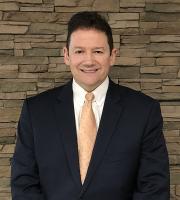Managing Your Cash Flow – The Overlooked Piece of Your Financial Plan
By Tom Turner, CFP®
Did you ever wonder how people become wealthy from their own earnings? Do they earn well? Usually yes, but not always. Do they invest well? Sometimes, but many don’t. One common denominator is that they spend far less than they earn. While many of the wealthiest families in the U.S. have much of their wealth tied up in the ownership of a business, they still often spend far less than they earn in net income.* It seems they understand this basic tenet of financial planning:
INCOME – EXPENSES = MONTHLY SURPLUS
As monthly surpluses get funneled into savings or investments, wealth is created. As the years pass, it’s possible to accumulate a fortune. It helps to understand a few cash flow/cash reserve strategies:
Keep 3 to 6 Months of Income in Cash Reserves (e.g., Savings, Money Markets)
Why are cash reserves important? We’ve heard our clients report that things often happen in threes. If you were to have a significant home repair, car repair and a large medical or dental expense, that 3 to 6 months of income might come in handy. Many people can’t conceive of those things happening all at once, but occasionally they do.
“Can’t I take money out of my investments if I were faced with that?” you might ask.
Investments are not liquid, and if the markets take a dip at the exact moment that you need to take a withdrawal, you may be selling your investments at a loss that you can never recoup.
Save at Least 5 Percent of your Net Income — Even into Retirement
As you have emergency needs, and withdraw from your cash reserves, it’s important to continue to replenish them.
In addition to their personal challenges, retirees may find that they are responsible for more emergency and unexpected expenses than before they were retired. As a family grows to include more people — each with homes, cars, children and medical needs — small crises may occur more often. It’s natural that parents, grandparents and other family members may occasionally want to help financially.
Debt Repayment
Many people who have debt rush to pay it off. While there is definitely some merit to paying off debt to reduce interest expenses, don’t be in so much of a hurry that it prevents you from saving at least 5 percent toward your cash reserves. Once you get your 3 to 6 months in cash reserves, then you can direct more resources to your debt reduction or investment goals, depending on which is more advantageous for you.
Should I Keep 3 or 6 Months in Cash Reserves?
How much you have in cash reserves is largely a function of risk tolerance and what you are comfortable with. A more aggressive (less risk averse) individual may have 3 months while a more conservative individual (more risk averse) may have 6 months or more. Most organizations keep more cash than they would like, but they do it because it is prudent, and because sales and revenue can be unpredictable. Salaries, benefits and expenses still have to be paid. A family or household is a small organization. Just as in business, a family must determine what its target cash reserves will be, and once it’s decided, at least 5 percent should be added to cash reserves before any spending from income occurs.
Large, Short-term Expenditures
You just found out that your son or daughter is getting married. You have $30k in cash reserves for emergencies, and you plan to contribute $25k to the wedding. What’s the best way to finance it? Should you use your cash reserves or get a short-term loan and pay it off over a period of time? If you can keep your cash and borrow at a competitive interest rate with a payment that comfortably fits your budget, it’s prudent to keep your cash and get the loan. Why? You could have a serious emergency just around the corner. “Can’t I just borrow for the serious emergency?” If the emergency involves you being out of work for any length of time, many lending institutions may be reticent to give you a loan. If you don’t have to pay for the wedding for several months or a year, you may even be able to save what you need without having to borrow.
Cash Reserves Met! The Next Step is …
If you have your target cash reserves saved up, and your only debt is your mortgage, you might now wonder what to do with the 5 percent that was going into cash reserves from each paycheck. At this point, you don’t need to have too much in cash. While your emergency reserves are liquid (can be converted to cash without any loss), they are also lazy and don’t work very hard. Once your target cash reserves amount is met, it may be advisable to direct 5 percent toward your investments since they have the potential to grow faster than your cash. If your cash reserves get depleted, redirect the 5 percent back to your cash reserves in order to build them up again.
TIP: Payday is tomorrow, but you still have $280 in your checking account. Transfer that $280 out of your checking and into your savings or investment account. It may not be millions yet, but you just created a potential wealth-building surplus!




